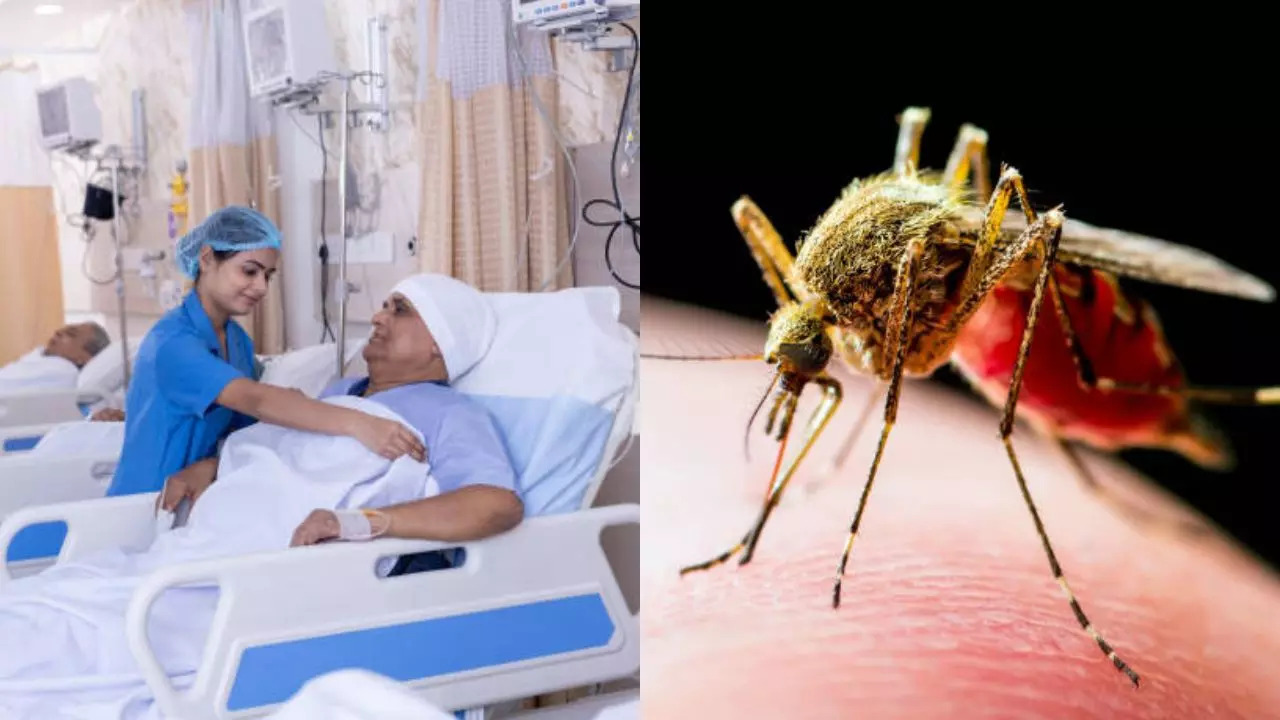Contents
-
news
-
Health
The mosquito-borne disease that paralyzes people in India is spreading rapidly in Pakistan; Know everything about it
A large number of people suffering from chikungunya are being admitted to hospital due to severe joint pain in Pakistan’s port city of Karachi, as the cases continue to rise. According to experts, the disease, which is spread by mosquito bites, is spreading despite regular fumigation in identified areas of the city. Read on to know the symptoms and prevention measures of this vector-borne disease.

500-750 suspected cases of mosquito-borne disease are being reported every day in major government hospitals across Karachi.
According to health agencies, hospitals in Karachi, Pakistan’s largest city, are filled with patients infected with the Chikungunya virus. News reports say 500–750 suspected cases of the mosquito-borne disease are being reported daily in major government hospitals across the city, adding to the pressure on an already struggling public health system.
Officials say regular fumigation is being carried out in identified areas of the city – where mosquitoes are active. However, despite this, there has been a steady increase in vector-borne diseases malaria, dengue and chikungunya due to inadequate sanitation, unhygienic conditions and failing waste disposal systems – all of which are breeding grounds for mosquitoes.
According to government records, around 200 people were found infected with the disease in Karachi between May and September. Of the 956 people suspected to be infected with the virus, 713 were tested. However, the actual number of cases is likely to be much higher. Many people are also diagnosed without PCR testing, instead relying on matching symptoms and blood tests that show low platelet counts, which may be due to chikungunya.
What is Chikungunya?
Chikungunya – also known as CHIKV, is a virus that is spread between people through mosquito bites – specifically, aedes aegypti mosquitoes and aedes albopictus Mosquito. According to doctors, the virus does not spread from person to person through physical contact or saliva – although blood transmission may be possible.
The name Chikungunya means bowing due to joint pain caused by the disease. Even though there is no medicine to treat chikungunya – you can manage your symptoms, most people recover from the disease in about a week.
Chikungunya signs and symptoms
According to experts, symptoms of chikungunya develop between 3-7 days after the bite of an infected mosquito. Some of these include:
- Fever
- joint pain
- Headache
- muscle pain
- swelling in your joints
- rashes all over your body
- fatigue and tiredness
- nausea
Chikungunya causes serious complications
According to doctors, chikungunya virus causes various complications – the most common being joint pain. Many people complain of pain for months or years after infection. Newborns, older adults – over the age of 65, and people with certain health conditions – are at risk for more serious complications, some of which include:
- diabetes
- high blood pressure
- heart disease
Doctors say that even though death from the disease is rare, there have been several cases where a person has reported heart, eye or neurological symptoms after recovering from the virus.
Complications include neurological issues such as paralysis and coma, as well as eye problems. These severe cases often require intensive care and mechanical ventilation, with uncertain recovery prospects and the risk of prolonged hospitalization or death.
Chikungunya treatment methods
According to experts, there are several medications that help keep the symptoms at bay, including:
- drink plenty of fluids
- I am getting a lot of rest
- taking acetaminophen for pain
Get the latest news live on Times Now with breaking news and top headlines from around the world.


